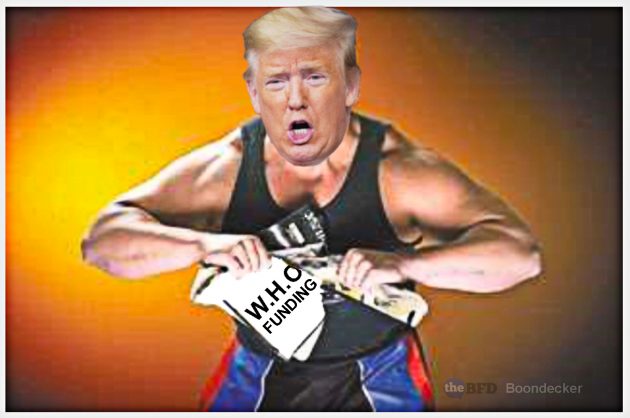As a regular visitor to the Middle East over the past twenty or so years I thought I had seen it all. I include in this assessment the (so-called) Arab Spring and the widely-held celebrations continuing after 9/11. But what I saw when passing through Dubai airport in the week after Christmas was something genuinely novel to these parts; and that was the figure of a Jew in his kippah – being openly Jewish, if you like – passing up the escalator in front of me, no doubt fresh off the El Al flight from Tel Aviv.

The Middle East has long been a difficult place for the Jews, who have traditionally not been visible. And right up to last year, all passports were assiduously searched at customs for any sign of an Israeli visa, for which entry to the holder would have been automatically denied. State of Israel passports were, of course, verboten. Until very recently, the last flights out of Israel to land in the Arabian Gulf states would have been back in the days of the British Protectorate.
That this situation changed more or less overnight is down to none other than President Trump’s 2020 Middle East peace accords, ratified by the United Arab Emirates, Bahrain and Egypt, and which The Guardian, of course, wrote off as ‘a flurry of dodgy deals’.
Except that there’s nothing dodgy about genuine peace, especially when that peace manifests itself in the small and practical way that I witnessed, where citizens of neighbouring countries travel to meet one another, to trade, to increase understanding and to prosper. When Barack Obama won his Nobel Peace Prize in 2009 for ‘extraordinary efforts to strengthen international diplomacy and cooperation between people’, he had achieved nothing of this kind. Had he done so, the folks at the Nobel Institute in Oslo would have had to invent a whole new level of prize.
Trump’s efforts at reconciliation in the Middle East are genuinely on a par with the entente between the great Ronald Reagan and Mikhail Gorbachev, which resulted in the fall of the Berlin Wall in 1989.
The main reason that the leftist elite cannot see this is that they do not live in the same world as the rest of us, which is a world of business and endeavour, and of real-time human interaction. It is also perhaps because the sight of a Jew going up an escalator in Dubai, or indeed anywhere, is not the sort of thing that the left truly wishes to see. And that could be why The Guardian stuck it out for so long with Jeremy Corbyn and continues to hold out for the unreasonable demands of the Palestinian cartel controlled by the Hamas, Hezbollah and Iran troika.
Yet Trump is a practical man, and what he has achieved on the ground – and continues to press for between Saudi Arabia and Israel – is a real Pax Americana. While he was ridiculed in many quarters for his courting of Kim Jong-un of the necropolis of North Korea (where the long-dead Kim Il-sung and Kim Jong-il are retained as ‘guides’ for the country’s activities), the outcome, while inconclusive, was definitely one of de-escalation.
Trump is, in fact, the first US President in nearly 40 years – since Nixon, Ford and Carter – not to begin a military conflict.
This deliberately stay-at-home attitude has been dubbed ‘insular’ and ‘isolationist’ by internationalist left-wing critics, although it is a move no doubt highly welcomed by the millions who have been blighted and displaced by the wars of America and its allies since the middle of the last century. In this respect, we should particularly remember the interventions of George W Bush, Anthony Blair, and of the laureate Obama, which sent a tidal wave of immigrants from Syria, Iraq and Libya careening into Europe, and from which that continent will probably never recover.
What Trump achieved at home was a genuinely low-tax, enterprise-based economy which sought to address the trade imbalance with China and bring manufacturing jobs home. For those of us old enough to remember, there was once a time when Western nations – including New Zealand – manufactured and sold physical products, and flourished by doing so. Yet this philosophy is a far cry from that of the New Monetarists who seek to inflate the Occidental economies with fake money and administer them as giant Ponzi schemes on the basis that the best we can possibly do is to sell ‘services’.
An important plank of the Trumpian economy is energy independence, which, while sneered at by environmental fascists, remains nonetheless a crucial factor in achieving human utility and success. The US was, after all, a major net exporter of energy in the early twentieth century at a time when it was at its most powerful. In more recent times, US oil imports had been at 60 per cent under Bush (Jr) and 36 per cent under Obama. Independence was achieved under Trump in December 2018, when the US became a net energy exporter for the first time in living memory. The oil shocks of the 1970s are, of course, still in many people’s memories.
In our pre-Ardern days, New Zealand had energy independence. And so we ought to remember what that feels like. Now, of course, not having an oil and gas industry, we power Auckland with Indonesian coal, the demand for which has increased ten-fold in the past twenty years. Open cast mining in Indonesia has left a trail of environmental destruction as the rain forests are cleared and turned into moonscape. Not that our virtuous Greens care. They are happy just so long as they can charge their electric vehicles for free (or rather on the taxpayer’s tab) outside the nearest McDonald’s.
What independence brings is freedom and choice, and America now has choice. Trump extended America’s freedom politically in October 2017 by withdrawing the United States from the United Nations Educational, Scientific and Cultural Organization (UNESCO), in June 2018 from the United Nations Human Rights Council (UNHCR) and in July 2020 from the World Health Organization (WHO).

It has long been held that many of the gossamer webs woven by these supranational entities violate the US constitution, and it is obvious to many observers that the overarching aim of the UN’s cabal of communists is to govern the citizens of sovereign nations over the heads of their elected representatives – in order that they may be no longer sovereign.
Over here we are pleased to be the UN’s plaything and frequently are admonished by middle managers such as Ardern and – vicariously – Clark, who are heavily ethically indebted to its agenda and have proven themselves ideologically inclined to do its bidding. This places us firmly within the nexus of a totalitarian, Islamist and proto-fascist oligarchy to whom the values of western liberal democracy are an anathema. Kiwis apparently don’t care; but Americans do. And I for one am grateful that Trump took back control of his country for the benefit of his fellow countrymen and women, and sought out not only a political but also a moral autonomy.
For this, as well as for Jews on escalators in Middle East airports, we should be very pleased.
Please share this BFD article so others can discover The BFD.

